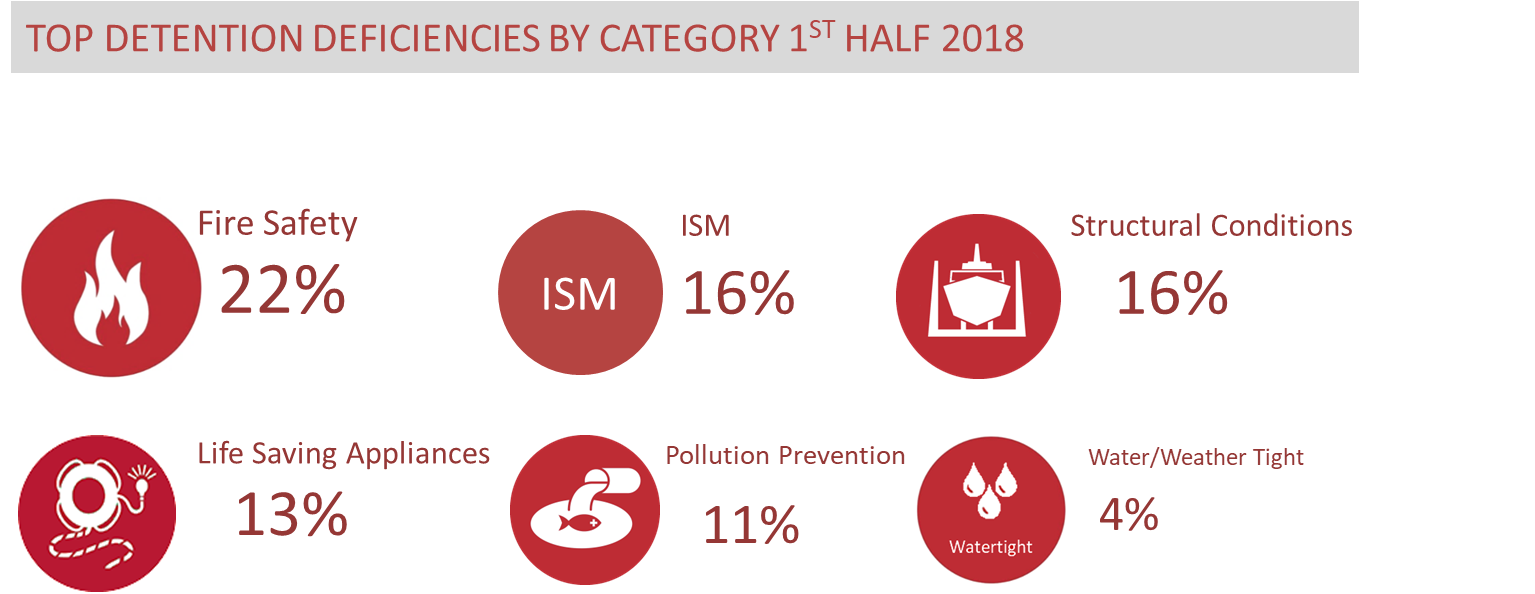In the first half of 2018, Singapore ships have performed well under Port State Control (PSC) in both the Tokyo and Paris MoU regimes. Under the Tokyo MoU regime, the detention ratio of Singapore is 0.88% against the regime's average of 3.37%. Under the Paris MoU regime, the detention ratio is 0.97% against the regime's average of 3.48%.
A total of 20 Singapore ships were detained under PSC worldwide in the first half of 2018, of which 50% took place in the United States (4 detentions), Australia (3 detentions) and Indonesia (3 detentions).
Most Common Causes of Ship Detentions
From our analysis of detention statistics for 1H2018, the most common categories of PSC detention deficiencies are listed below:
Fire Safety, ISM, and structural conditions are the top categories of detainable deficiencies for Singapore ships.
Out of the 20 PSC detention cases recorded this year, 10 were related to fire safety; 7 ISM-related; and 7 deficiencies were related to structural conditions. These made up more than 50% of the total number of deficiencies.
Some common detainable deficiencies experienced this year include:
Fire Safety
- Fire door entrances to the engine room or escape trunk doors were defective.
- Fire dampers in engine room funnel were seized and cannot be closed.
- Fire detection system was defective.
ISM
- Deficiencies were objective evidence of a failure, or lack of effectiveness of the implementation of the ISM.
- Ship personnel were not maintaining the ship or submitting non-conformity reports in accordance with their SMS.
- SMS did not ensure that personnel were given proper familiarisation with their duties related to safety and environment protection as evidenced by deficiencies.
Structural Conditions
- Deck lights and emergency deck light in the cargo area did not appear to be gas safe. Electrical connections made with tubing that was not sealed as designed.
- When operating on any steering pump configuration on the bridge in non-follow up mode, the rudder drifted to the starboard.
- Airlock door did not have a self-closing arrangement.
- Hydraulic line for cargo holds was wasted and holed.
We hope that SRS operators continue to pay attention to effective implementation of SMS on their ships including proper inspection, testing and maintenance of systems on board. Ship personnel are also reminded to check the operational readiness of all shipboard systems after they are being serviced, whether afloat or in the dry dock.
